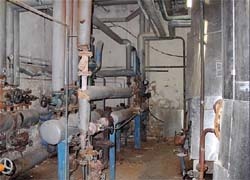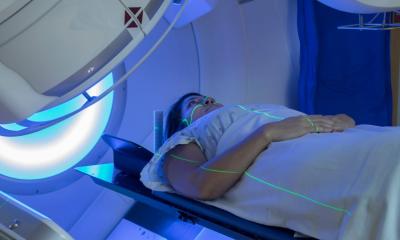The Czech scene
Water and energy management (WEM) appears to be successfully handled by the majority of local healthcare institutions, because Czech hospitals do spend, on average 2-5% of their budgets these resources.

Recent publicly available data on Czech hospital management confirm that modern management programmes were widely developed and implemented to help improve hospital water efficiency, and reduce water consumption. International standards (ISO norms) are being employed to prepare the hospital technical background to evaluate opportunities for water savings without any adverse effects on daily operations. Regardless of hospital size, water saving measures need not be overly expensive, but there is always a strong need for complexity and attention to detail, because resources saved in one place may be easily wasted elsewhere. For this reason, authors of water saving programmes always strive to cover all potential losses, starting with easy steps taken on the patient’s side, e.g. room faucets, toilets, showers, laundry and gradually arriving at improvements for technical appliances, e.g. refrigerators, air-conditioning units, sanitisers, sterilisers, etc. In terms of lowering water consumption, faculty hospitals in particular adopted various measures including:
• installation of flow control fixtures on all faucets and water saving shower heads
• replacement of high consumption toilets and urinals by modern sanitary installations with low consumption valve kits
• installation of wash-water and rinse-water recycling and reclamation systems to re-use water for consequent wash cycles
• management of washing-related processes, e.g. ensuring full loads in lab equipment washers, sanitisers, sterilisers, etc.
• installation of automatic valves, wherever necessary, to cut down on water consumption, e.g. biochemical analysers, X-ray film processing units, etc.
As water distributors keep raising prices, nowadays similar measures (more or less pronounced) are fully implemented in all Czech hospitals.
Energy be praised
Importance of energy efficiency is also widely recognised in Czech hospitals. One very good example of how to deal with ever increasing energy prices and environment-friendly thinking was a project developed through a cooperation between Prague Bulovka teaching hospital and the firm EPS CR (Energy Performance Services), which has implemented an eight-year performance contract for energy efficiency services to the hospital. The contract provided long-term financing for the energy system upgrade. The 1,600-bed Bulovka hospital covers around 80.000 m2. Its energy bills totalled 10–15% of its annual revenues (enormous amounts of energy were used to generate heat in the hospital’s own steam plant). The hospital underwent large scale reconstruction and modification of various energy-related appliances and procedures including switching from steam heating to district heating system and implementation of new computerised energy management system; the installation of modern air handler recovery system, and high efficiency natural gas boiler and the installation of modern control and monitoring equipment and replacement of old piping.
It is more than obvious now that, despite the initial high investment, all implemented changes led to vast savings resulting in its return in just a couple of years. Again, similar changes to energy consumption and related processes were established in all healthcare settings countrywide.
The Varnsdorf case – In this town, one of the smaller hospitals was extensively reconstructed in terms of energy consumption management. Reconstruction of the heating system occurred in 2002 and the project contractor, EVC Ltd, supplied new technology and equipment using an EPC (Energy Performance Contracting) method that allows for a significant decrease of investments spent on daily hospital operation. After the hospital heating system reconstruction, operating costs reduced to about 50% of previous costs.
11.11.2008





